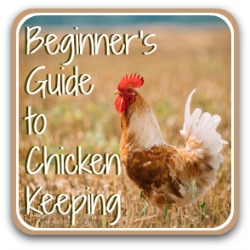- Home
- Just for fun
- Stress relief
How to relieve stress - the way of the chicken!
Feeling a little anxious or stressed? Here are six life lessons from your chickens you should embrace!
Just sitting with your chickens can be a stress relief in itself. Watching them running round like miniature dinosaurs, chasing the same bits of food, coming to sit with you and have a chat...
And there are other behaviours our chickens instinctively do which are essential for their welfare and which we would do well to copy, to help calm our own feelings of stress and anxiety.
So if you feel like stress is making you sick, or you just need a bit of light relief - read on!
And if you'd like to share your own story about how your chickens relieve stress and give you joy, you can do it by clicking right here!
1. Take time for yourself each day.
Chickens are social beings but even so, hens take time for themselves every day.
It's called egg-laying.
During that time, they remove themselves away to somewhere they feel safe - hopefully your nest boxes. They prefer that the nesting area is a private, quiet, somewhat dark place where they can rest and relax.
If you've ever seen a hen in the laying zone, she'll often seem almost Zen-like in her relaxed state.
The relaxing part of this is so important to the successful, stress-free lay that many people (including me!) add a herb mix to the bedding. Lavender is a good choice.
How to relieve your own stress like a chicken!
- Studies have shown that taking some quiet time out each day can reduce human stress levels significantly (see for example [1]).
- So find yourself a quiet space, away from other distractions. Listen to some calming music, or use a meditation app to help concentrate and focus the mind.
- Adding a bowl of lavender or an essential oil burner will help you find that place of calm.
- I've even occasionally sat quietly in a corner of the nesting box part of my chicken house and listened as the hens make quiet, contented little clucking noises - and sing the egg-laying song!
2. Set aside time to hang out with friends.
Ever noticed how much of your flock's time is spent in the company of others? Chickens are actually very social birds and enjoy hanging out with each other - and often, with people, too.
Dust bathing has to be the obvious example of this. True, its other purpose is to help keep your chickens' feathers in prime condition, and to keep nasty unwanted things like the dreaded red mite away.
But chickens could do that alone. Instead, they choose to stay together.
 Four of my Red Stars choose to dustbathe together.
Four of my Red Stars choose to dustbathe together.How to take your socialisation cue from your chickens.
Much as spending time alone can significantly reduce stress, having no contact with other people is known(2) to...
- increase trust
- reduce the levels of stress hormones such as cortisol
- increase dopamine which raises our "happiness" levels and can relieve physical pain
- increase overall health and
- help prevent mental decline.
So take a leaf out of your chickens' stress-relieving textbook. Spend some time with friends. If you're fortunate enough to be able to, book in at a relaxing spa for a day.
But just a short walk, meeting up for lunch, or even a video (or phone) call is enough to get those happy hormones active!
3. Keep moving to manage stress!
Have you noticed that chickens are always on the move?
In the wild, jungle fowl (Gallus gallus) will spend around 61% of their time foraging(3, 4). Domestic chickens generally don't need to forage for that long, because their food is mostly provided for them.
Nevertheless, they'll keep moving (unless they're laying or dust bathing!). If they free range, studies(5) found that they'll roam further from their coop in the morning, and older hens will roam further than younger.
And the further they roam, into uncrowded areas with more space, the better their feather condition.
Conversely, chickens who don't get as much exercise, for example those in commercial farms where they're confined to barns, are more likely to become ill and depressed (yes, chickens do feel emotion(5)).
 My older Red Stars are more adventurous than the younger flock members and have excellent feather condition.
My older Red Stars are more adventurous than the younger flock members and have excellent feather condition.How to relieve your stress with movement.
- This one won't come as any surprise to you. The physical effects of stress on the human body can cause symptoms including high blood pressure, weight loss - or gain - depleted immune system and increased illness.
- Exercise has long been known to trigger those feel good endorphins, improves mood and positively affects the digestive, immune and cardiovascular systems.
- Don't look on it as a chore. Find a way of moving that you enjoy. If you can't think of anything you've done as an adult, try to remember what you loved as a child. Roller-blading, cycling and skipping (US "jumping rope") are just some of the exercises you may re-discover.
- And remember, if you're not used to exercising, take it slowly and check with your doctor to make sure what you're planning is appropriate.
4. Eat healthily and limit treats!
By and large, chickens will eat healthily if left to their own devices. If they free range, they'll supplement their feed and feast on greenery, including various plants and weeds, and bugs. Mine love a nice plump lizard or two, as well.
Despite their being able to fend well for themselves, we all love to give our chickens treats. It's hard-wired into many of us - feeding is seen as a way of expressing love. And we love our flocks.
But too many treats can harm our chickens, even if they're healthy treats like pumpkins...
There's evidence that feeding high protein foods, for example, although they can be useful in very specific circumstances, can lead to early death if overdone.
And the same is, of course, true for us.
How to eat to counter the physical effects of stress in humans.
Everything in moderation is the solution, for us and for our chickens, to relieve the physical symptoms of stress.
A lot of the food which is good for chickens is also good for us - not chicken feed of course! But healthy fruit and veggies, some of the plants - garlic, pumpkins and sunflower seeds, for example - and weeds. Even fermented food.
You know how it goes. A basic, appropriate diet, and occasional healthy treats are key.
5. Enjoy your children.
Some - but not all - chickens make great broody hens.
A good brooody will spend time with her chicks from the moment they hatch until they're about six to eight weeks old. She will teach them what's good for chicks to eat, how to avoid predators, how to dust bathe and forage...
And for the rest of the time, she'll find a quiet place to keep them warm and rested, away from the chaos of the rest of the flock.

Lessons for stress relief from hens and chicks.
There are two separate yet connected lessons to be drawn from mother hens:
- Enjoy your own children or grandchildren. Spend quiet time with them. Whatever you're facing in terms of stress, you can't help but have your mind focused on the positive when there are children around.
- Spend time with your baby chickens! Whether you hatch your own, have a broody hen hatch them for you, or buy them in, watching them develop from littlies is always fun.
- The bonus is that spending time with and handling chicks from a very young age means you'll have a flock of very friendly chickens as they grow up.
6. Spread your wings and try to fly - even if you don't make it!
Have you ever watched a chicken try to fly? As baby chicks, they can certainly fly out of brooders unless you have some kind of covering on top.
As they get older, though, it becomes more difficult. Their wings can't carry their body weight for more than a few feet, so rather than the majestic flight of birds of prey, you see the awkward lollopping-hop-jump and fairly quick drop to the ground, which can make chickens so entertaining to watch.
 A chicken in mid-flight - not terribly elegant!
A chicken in mid-flight - not terribly elegant!It doesn't stop them trying, though. To the extent that I always need to clip the wing feathers of certain breeds (Red Stars are the worst culprits!) to prevent them from flying over my eight foot fence into the jaws of a passing fox!
And how else would chickens manage to get into my 40 foot bay tree to roost, when they know perfectly well they should be tucked up in their coop?!
Translate trying to fly for your stress relief.
Try to fly. It's that simple.
Pushing ourselves to do something outside our comfort zone can be exhilarating.
What should it be? That's entirely your choice.
For me, it was building this website when I started off knowing nothing at all about online stuff. (To see my story about that, take a look here).
For you, it could be anything. What did you love doing as a child? What do you dream of doing now?
Bite the bullet. Make like a chicken.
Spread your wings and fly.
Do your chickens give you joy?
I've written here about just a few ways our chickens can help us with stress relief. In response, I've had a lot of emails from people from all over the world, telling me how their chickens have brought them joy.
I've loved reading every one, so I decided that we should spread the love!
Do you have a similar story? Let's share the warmth and happiness our chickens bring us - tell your story here!
Click on the blue ? for help with each section.
Share other people's chicken joy!
Click below to see contributions from other visitors to this page...
Stress relief stories, 2021. 




I love learning about chickens, and maybe one day I'll add some to my flock. My duck flock.
I absolutely adore my ducks. They're just... well if we're …
Some other pages you may enjoy.
Sources.
1. Riemer, S., et al: Decreased stress levels in nurses - the benefits of quiet time. Pub. American Journal of Critical Care, 2015.
2. Cohut, Dr Maria: What are the health benefits of being social? Pub. Medical News Today, 2018.
3. Jacob, Dr Jacquie: Normal behaviours of chickens in small and backyard poultry flocks. Pub. University of Kentucky, date unknown.
4. Marino, Lori: Thinking chickens: a review of cognition, emotion and behavior in the domestic chicken. Pub. Journal of Animal Cognition, 2017.
5. Chielo, L. I.: The use of range, behaviour, nearest neighbour distance and feather condition of commercial free-range laying hens. Pub. University of Lincoln, 2017.
6. Mayo Clinic staff: Exercise and stress. Pub. Mayo Clinic, 2020.
- Home
- Just for fun
- Stress relief



















